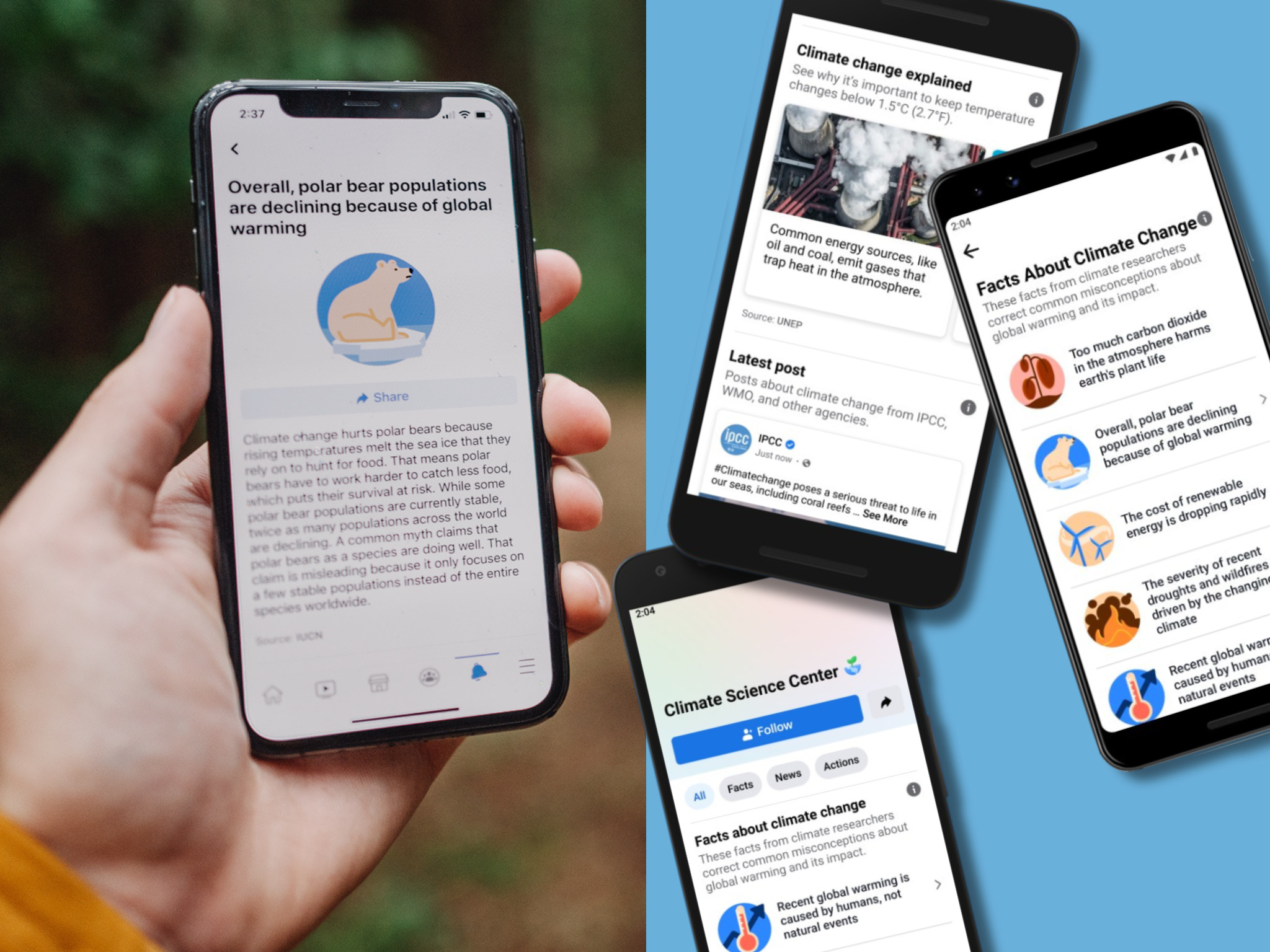5 Mins Read
A new 110-country study conducted by the Yale Program on Climate Change Communications in partnership with Meta offers insights into the climate change beliefs, attitudes, policy preferences, and behaviours of Facebook users across the globe.
In a sea of misinformation about climate change, it can be hard to gauge what people truly think about the crisis, and where they get their information from. Climate change on social media is a topic of its own, with experts publishing reports analysing people’s attitudes towards the subject online.
For example, earlier this year, a report by the Climate Action Against Disinformation Coalition revealed that X (formerly known as Twitter) is the worst platform when it comes to policies aimed at reducing misinformation. It’s not just the microblogging site that has its gaps, though.
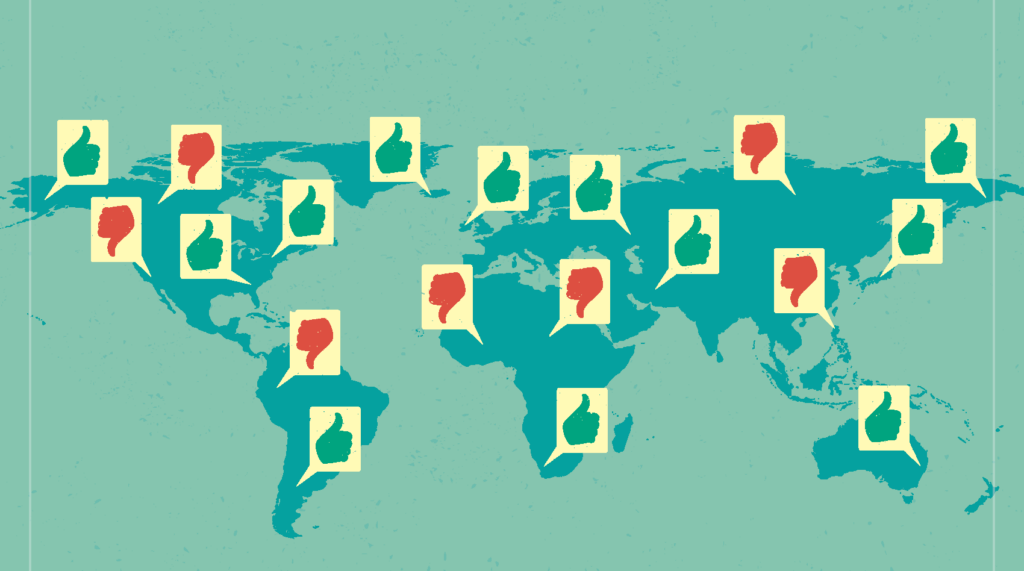
In 2020, Meta (then called Facebook) opened a Climate Change Centre to combat misinformation, but an analysis published a year later found that the Centre was failing to tackle the problem. Perhaps in an effort to do more, Meta’s Data for Good platform has partnered with Rare’s Center for Behavior & the Environment and the Yale Program on Climate Change Communication to find out what people truly think of climate change and its effects.
Conducted between August and September, the survey covered 139,136 Facebook users across 110 countries. The authors do note one limitation: since this was carried out on Facebook, a social media platform, “it likely underrepresents populations with lower incomes and literacy rates”.
Below are the key stats from the poll:
Do people know about climate change?
Consumers in Finland (89%), Hungary (85%), Austria (77%), and Germany (76%) are the most likely to know “a lot” or “a moderate amount” about the climate crisis. On the other end of the spectrum, people in Benin and Haiti (both 36%) are the ones most likely to have “never heard of” climate change. In terms of regions, Europeans are most likely to say they know a moderate to high amount about the topic, with majorities in 27 out of 31 areas, but respondents in Sub-Saharan Africa are the least likely, with no majorities saying so.
How many people believe climate change is happening?
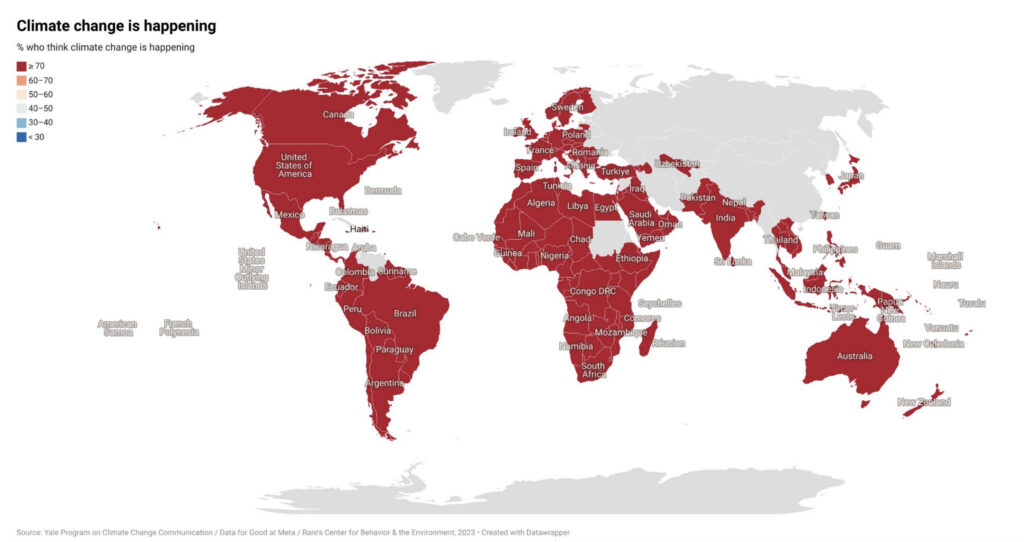
Once respondents were given a short definition of the ecological crisis, a majority of respondents in all countries surveyed said climate change is happening. The definition was: “Climate change refers to the idea that the world’s average temperature has been increasing over the past 150 years, will increase more in the future, and that the world’s climate will change as a result. What do you think: Do you think climate change is happening?”
El Salvador (94%), Sri Lanka, Taiwan, Armenia, Nicaragua (all 93%), Puerto Rico, Mexico and Colombia (all 92%) are the likeliest to believe so, while those in Haiti (64%), Australia, the Netherlands (both 70%), Laos and Austria (both 71%) are the least likely.
How many people think climate change is caused by humans?
Additionally, when it comes to believing whether climate change is human-caused – 97% of actively publishing scientists say climate change is happening and caused by humans – people in Portugal (61%), Spain (59%) and Finland (57%) are the most likely to believe this, while those in Haiti (18%) and Indonesia (20%) are the least likely. Only 16 countries have majorities saying climate change is mostly caused by human activities, though.
Are people concerned about climate change?
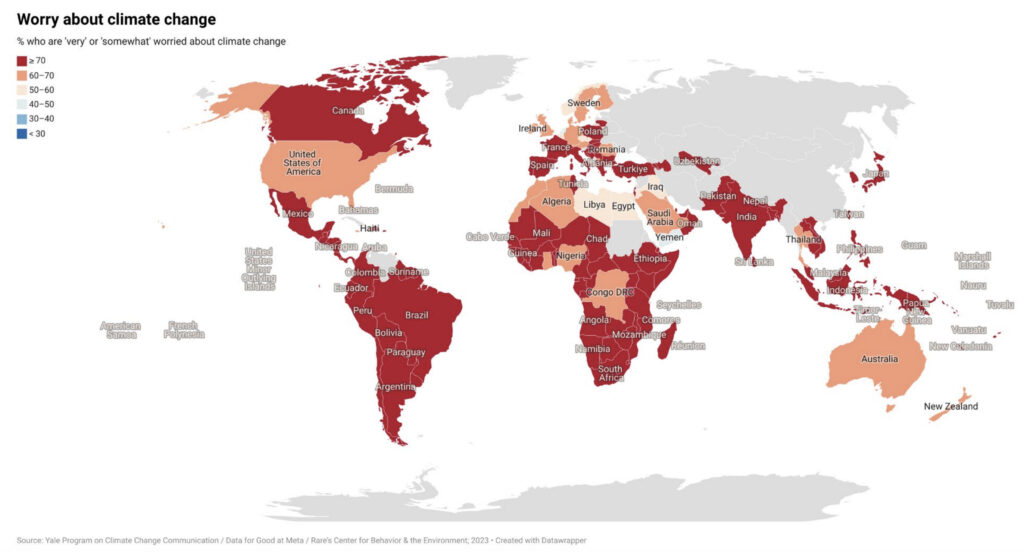
In terms of eco-anxiety, majorities in 108 out of 110 countries are worried about climate change. South Korea, Puerto Rico (both 93%), Costa Rica, El Salvador, Mexico and Ecuador (all 92%) have the highest numbers here, versus only 45% and 47% of people in the Netherlands and Yemen, respectively.
Meanwhile, a majority of respondents in three-quarters of the country find climate change personally important to them, with the highest shares being seen in El Salvador (87%) and Mozambique (85%), and lowest in the Netherlands (19%) and Jordan (28%).
Who do people think the climate crisis will affect the most?
Who will face the worst impact? 84% of Puerto Ricans and 83% of Costa Ricans believe the climate crisis will harm the future generations “a great deal” – more than any other country – while only 27% believed so in Yemen. In terms of regions, South Americans are most likely to think climate change will hurt posterity a great deal, while Southwest Asians and North Africans are the least likely.
El Salvador is the country where the highest number of people think climate change will affect themselves a lot (66%), followed by Puerto Rico, Mexico, Panama, Colombia and Malawi (all 61%). People in the Czech Republic, Finland (both 5%) and the Netherlands (7%) don’t think the crisis will affect current populations.
What do people feel about climate policy and governments?
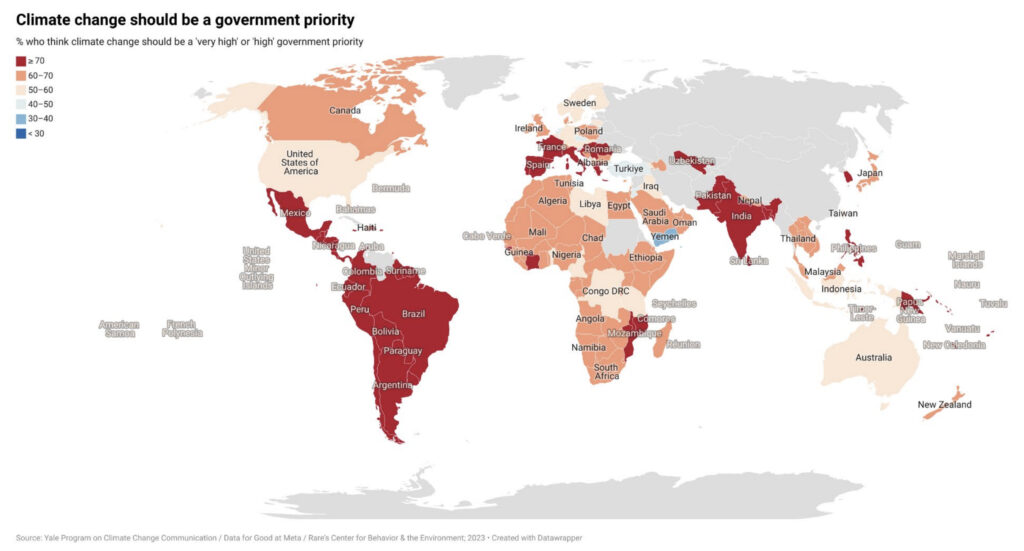
A majority of respondents in most areas (103) say climate change should be either a “very high” or “high” priority for their governments. This is led by areas in North and Central America (nine out of 15), and South America (6 out of 9), where Facebook users say climate change should be a “very high” priority for governments: Puerto Rico (92%) and El Salvador (90%) top this list. On the other hand, respondents are least likely to feel this way in Yemen (18%), Lithuania, the Czech Republic and the Netherlands (all 19%).
With an estimated 52% of global Facebook users falling between the 18-34 age bracket, there are positive signs for climate attitudes in Central American countries. But despite the country’s climate-forward policies and protests, Dutch Facebook users have a surprisingly blase attitude towards the crisis. In Finland, meanwhile, a majority of people know about climate change and believe it’s human-caused, but only a tiny number think government policies should address it – a classic case of informed ignorance.

